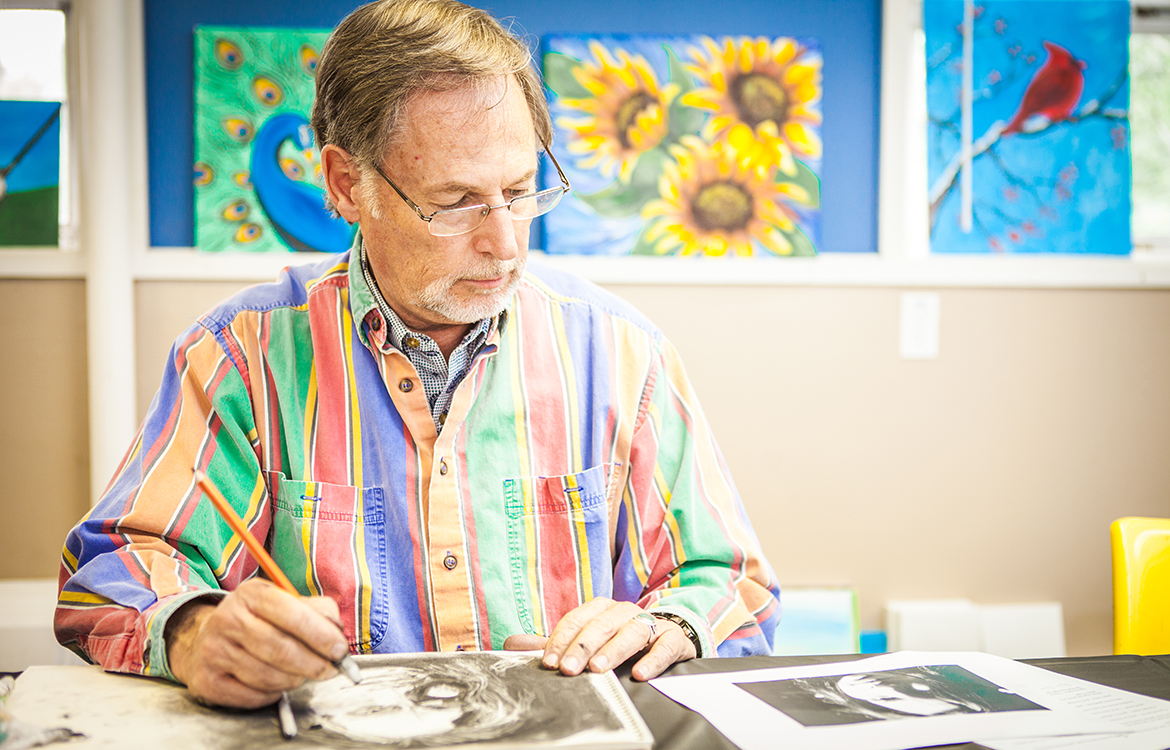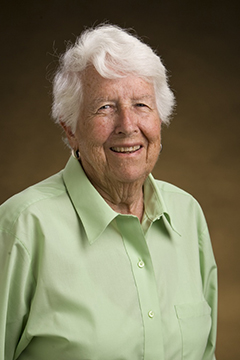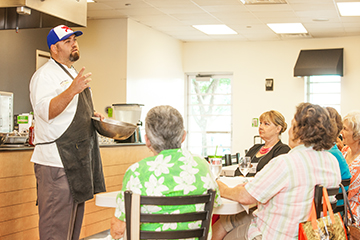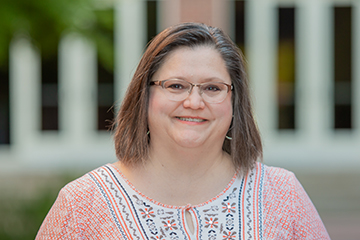
Learning for life
Wednesday, October 23, 2019

At 94 years old, Mary Frye prides herself on being a lifelong learner. The high-spirited Stillwater resident with an infectious smile is one of thousands of people age 50 or better who have taken courses through Osher Lifelong Learning Institute at Oklahoma State University.
“There are an awful lot of people who want to continue to explore, to learn, to be in contact with other folks and this program fulfills it all,” Frye said.
OLLI@OSU gives participants the opportunity to expand their knowledge through classes, travel and social activities while enriching the quality of their lives.
“One of the great things about OLLI is the comradery and the fellowship that comes with being with like-minded people,” said Robbin Davis, who took over as the program’s director in June. “Certainly there is the learning, which keeps your brain engaged, but the social engagement is equally important.”

2007 BEGINNING
OSU’s program began in 2007 with 35 members and now holds classes in Stillwater, Tulsa, Bartlesville and Oklahoma City. Non-credit courses this semester—ranging from acrylic painting to the Vietnam War — are taught by qualified instructors who volunteer on subjects they are passionate about. OLLI@OSU founding director RuthAnn Sirbaugh, now the manager of continuing professional education for the College of Human Sciences, said it is amazing to see how genuinely interested the students are in learning. Sirbaugh wrote the first grant proposal to the Osher Lifelong Learning Institute with help from retired sociology professor Dr. Ed Arquett after the OSU Emeriti Association approached then-College of Education Dean Pamela Fry —now the OSU-Tulsa president —about offering lifelong learning courses. The program now numbers more than 1,000 members.
QUALITY COURSES

Sirbaugh loves that OLLI@OSU provides high-quality courses.
About 12 years ago, a course about the Tulsa Race Riots had the last remaining survivors of the 1921 massacre speak.
“There are so many impactful things that we learn about,” Sirbaugh said. “I have a deep love of the educational process and a serious respect for how we craft our courses. We let people learn what they wanted to learn about.”
Most courses are two hours, once a week, for six weeks. There are no tests or grades.
Though the program is for those 50 and better, all are welcome.
Sirbaugh joked, “You’ve got to have coffee and by God, you’ve got to have Fig Newtons.”
She estimates that roughly 85 percent of the Stillwater OLLI@OSU participants are retired OSU faculty, staff or public-school teachers.
“They appreciate the research going on at OSU and have been willing participants for several professors,” Sirbaugh said.
RESEARCH TIE-INS
Dr. Alex Bishop, Human Development and Family Science associate professor and coordinator of the gerontology program at OSU, studies the vitality of old age.
“I look at very specific things like healthy longevity, subjective well-being, life satisfaction and quality of life,” Bishop said.
The Department of Human Development and Family Science is offering a new minor specific to aging.
“We hope students would take an interest in it because it is a growing population,” Bishop said. “By 2030, there will be more persons turning 65 than there will be babies being born, every day. This is a growing market, and there is opportunity for students to take advantage of it.”
He sees in-demand jobs in health care—think geriatrics—recreational/ hospitality and housing.
Dr. Emily Roberts, an assistant professor in Design, Housing and Merchandising, focuses on gerontology and architecture.
“I’m looking at how the physical environment impacts older adults, whether it’s at home, a long-term care facility or dementia care,” Roberts said. “Long-term learning is a big piece of avoiding cognitive decline. The four factors of remaining active and being able to remain in your home are longevity, independence, fitness and engagement. The fitness and engagement pieces fit well with OLLI.”
One research project she and her students are working on involves the idea of repurposing closed malls into indoor-outdoor mixed-use communities where programs and services with multiple levels of care and providers would be offered to people with early stage cognitive decline. Residents would have the freedom to go to the supermarket, visit a community garden or go out to dinner —all within the confines of the center.
“We all know that people want to stay in their homes,” Roberts said. “OLLI is a great opportunity for older adults to continue to have purpose by going to class, staying social and avoiding isolation.”
